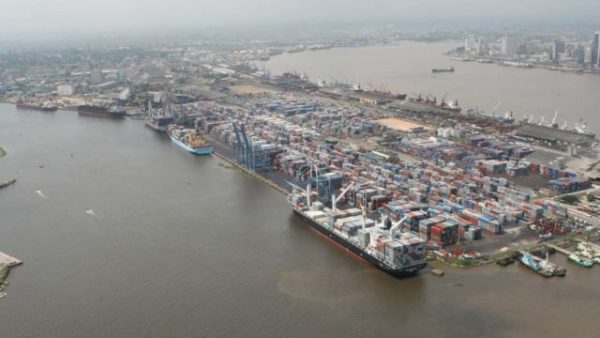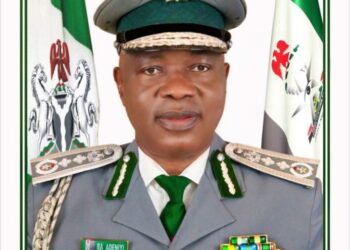
Nigeria lost its position as a ship owning nation in 1995, when the then-Minister of Transport; Major General Ibrahim Dahiru Gumel (now deceased) supervised the liquidation of the nation’s national carrier; the Nigerian National Shipping Line (NNSL).
From then, Nigeria went from a nation of almost 29 ships to a nation that can no longer boast of owning a ship that is trading on international waters.
In 2011, and after a long period of silence, the then-Minister of Transport; Alhaji Ibrahim Bio gave a hint that the Federal Government had given approval to the Nigerian Maritime Administration and Safely Agency (NIMASA) to float a new national carrier; albeit, in partnership with the private sector.
In 2014, the then-Director General of the Nigerian Maritime Administration and Safety Agency (NIMASA); Dr Patrick Akpobolokemi openly declared that the national carrier would be re-floated in six months. That was in May of that year!
The NIMASA boss had even gone ahead to disclose that government would achieve this by evolving a Public Private Partnership (PPP) initiative in order to avoid the pitfalls that led to the liquidation of the Nigerian National Shipping Line (NNSL).
He had told participants at the function that, the then-President; Goodluck Jonathan had tasked NIMASA to ensure that the national carrier is brought back during his regime.
They both left office without achieving the objective of refloating the national carrier in 2015.
For those who have also asked questions about the current status of Nigeria as a maritime nation, the answer should start from the foray which Nigeria made into shipping and ship ownership with the birth and the subsequent death of NNSL, the creation of an interventionist policy called ‘Ship Acquisition and Ship Building Fund’ (SASBF) and the abuses which the scheme was subjected to, and its subsequent scrapping. The SASBF created ship owners, who either had no ships or failed to repay the loans that were given them. Only one or two beneficiaries (out of about 15) repaid the loans
The birth of a successor company to NNSL; in the name of Nigerian Unity Line (NUL) and its death will offer a good thesis on how and why government businesses fail in Nigeria. While the defunct NNSL (at a time) had a fleet that is in excess of 25 bulk carriers, beneficiaries of the SASBF could only account for only one or two vessels that could not stand the test of time. None of the few ships that were bought with the SASBF sailed for up to three years.
And since the failure of both the NNSL and the SASBF, the challenge has been – how does Nigeria get back on track as a ship-owning nation. While some may argue that government’s direct participation in shipping through tonnage ownership is no longer in vogue, especially as most African nations have done away with the idea, it is also arguable that government can not completely divest from this core sector of the nation’s economy.
We are often told that Nigeria has more than 1000 ships in her registry, but we dare ask: how many of them are actually owned by Nigerians and what is the deadweight of each of the ships? From findings, majority of what Nigeria currently has on her registry are coastal vessels and supply boats.
We note that there have been some feeble attempts on the part of NIMASA to galvanize the finance sector, especially the banks to embrace ship financing. Very few banks have shown interest in funding ship acquisition, majority of the banks prefer to fund acquisition of service boats in the oil and gas sector. Acquisition of container ships and bulk carriers is understandably out of it. Not until the Cabotage law came into the centre stage, there was little or no interest on the part of the financial institutions to be a part of efforts that were aimed at boosting indigenous fleet. We recall that when government threw its weight behind fleet expansion through the SASBF, there was no Cabotage.
Although, it has been many years since the Cabotage Act came into effect, it has not enhanced ship acquisition, neither has it enhanced the fortunes of indigenous ship owners. We had thought that since one of the core functions of NIMASA is improvement of Nigeria’s participation in sea borne trade, it should have begun to fashion out a workable and sustainable way to boost our indigenous fleet, even if it is centred on acquisition of Cabotage vessels.
But the lot has fallen on the shoulders of the Implementation Committee for the new National Fleet; an all-encompassing body made-up of stakeholders from both private and public sectors. It was headed by the then-Executive Secretary of the Nigerian Shippers Council; Mr Hassan Bello.
Right from the start of the committee’s assignment, Hassan Bello had explained that, what the committee is working on is not in the mode of government-owned Nigerian National Shipping Line or its successor; the Nigeria Unity Line.
“It is a private sector-driven business venture; it is going to be driven purely as a business enterprise with equities and structure totally spelt out. You can now see that it can not be a national carrier in the mode of the NNSL, it’s a totally different arrangement”, he was quoted as saying.
To give vent to the desire for a private sector-driven national fleet, Nigeria sought the partnership of Singapore, and a leading shipping line; Pacific International Lines (PIL) came on board. A Memorandum of Understanding (MOU) was signed by Nigeria’s Minister of Transportation; Mr Rotimi Amaechi and the Managing Director of Pacific International Lines; Mr Teo Siong Seng.
The equity is supposed to be in the ratio of 60:40, for Nigeria and PIL respectively, with Nigerian businessmen providing the finance, while PIL provides the ships.
The MOU which covers establishment of Nigerian national fleet for dry cargoes, crude oil carriers and offshore supply vessels was signed in August 2016. Sadly, about six years down the line, the dream appears dead.
So, what went wrong and why is it that the MOU could not be actualized since 2016, with successive Ministers passing the buck.
We are tempted to blame the immediate past Minister of Transportation; Mr Rotimi Amaechi for signing an agreement that was bound to fail from day one?
Before he left office, he had blamed it on the inability of supposed Nigerian financiers to meet the equity requirements.
If indeed, the MOU is to “establish a private sector driven Nigerian National Fleet to fly Nigerian flags Container/Dry Cargo Vessels, Crude Oil Tankers and offshore Supply Vessels (OSVs) to operate in the International, African and Nigerian Cabotage Waters, are these conditions difficult to meet?
His successor; Muazu Sambo has equally not done anything to give hope to the dream of a national fleet.
He has practically dumped the report of the committee which was submitted to him about six months ago.
This newspaper recalls that, when the committee, which is headed by the Executive Secretary of Nigerian Shippers’ Council; Mr. Emmanuel Jime, the Minister sounded disappointed that Nigeria does not have a national fleet.
Recall that the minister had in September last year received the interim report on the need to establish a strong and sustainable
Sambo, during the presentation of the committee report had expressed shock that Nigeria, an oil-producing state and sixth largest oil producer in the world, does not have a fleet.
He thereafter promised to approach President Muhammadu Buhari and the Minister of State for Petroleum Resources on the prospects and implementation of the Nigerian fleet project.
Sadly, six months after the report was submitted to him, and less than two months to his exit from office, there is no evidence that he has taken up the matter with either the President or the Petroleum Minister.
Notably however, the aviation ministry is at least being seen to have hope of a national carrier, even before the May 29 exit date of this administration.
Were it not for litigations, that aviation sector would have had its national carrier in December 2023. So what is good for the aviation sector is also good for the maritime sector.
The maritime industry may need to drum it in the ears of the in-coming government that the APC had promised to resuscitate the nation’s national fleet, it failed.
Now that elections are over and a President-elect has emerged, it is the right time stakeholders coalesce and lobby the incoming administration about the imperative of a national fleet for the Nigerian maritime industry.
Whichever way, the industry still needs the government to facilitate the dream of a national carrier.
Follow us on Facebook/ twitter















